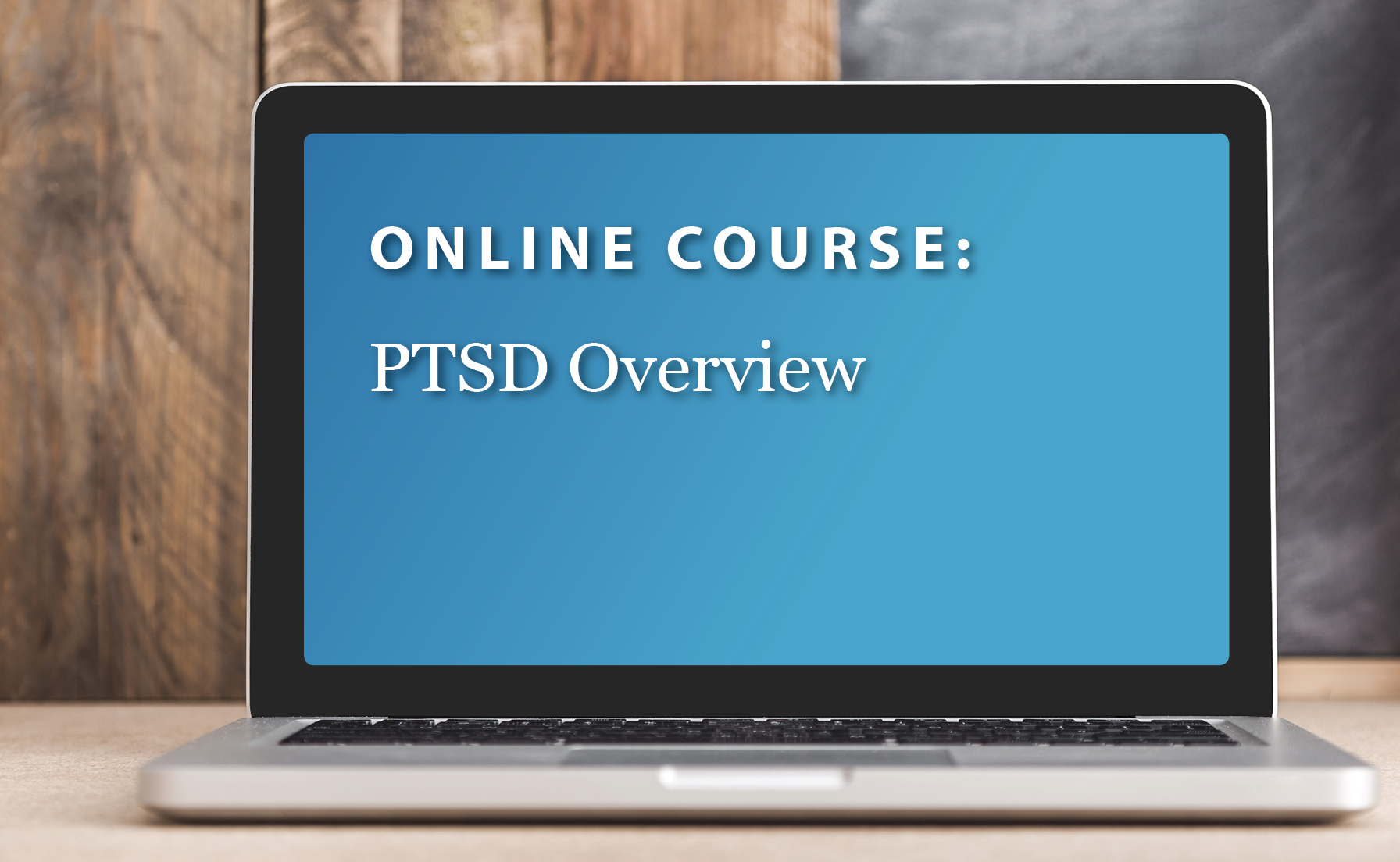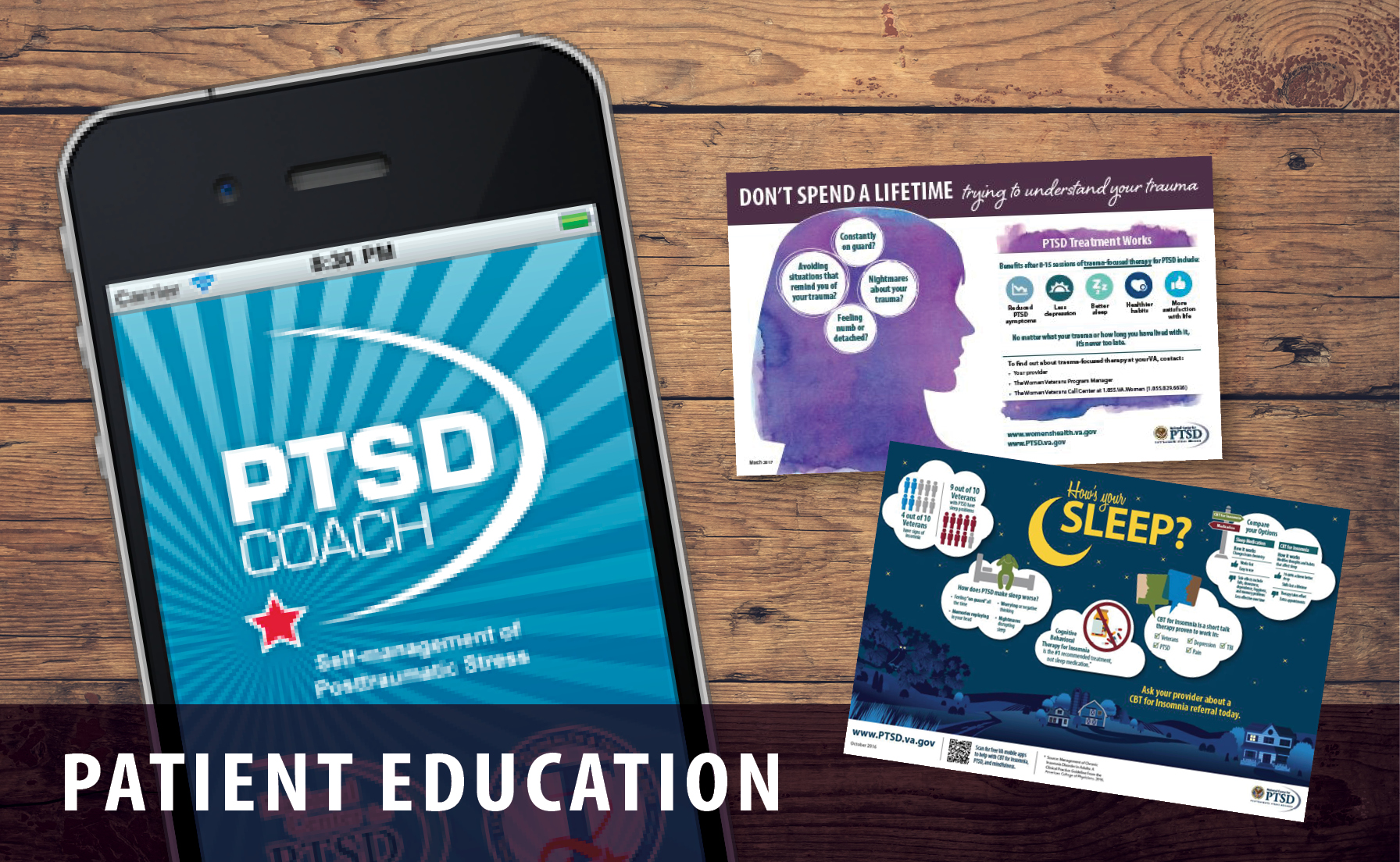PTSD: National Center for PTSD
Anniversary Reactions and Other Recurring Trauma Reminders
Anniversary Reactions and Other Recurring Trauma Reminders
A key symptom of posttraumatic stress disorder (PTSD) is reactivity to trauma-related cues. Such reminders (also referred to as "triggers") are often unexpected and unforeseen. But trauma-related cues can also be anticipated and linked to a particular recurring moment in time. Such anniversaries can be memorialized as a meaningful time to remember, or they could come to be anticipated with anxiety. Some are publicly shared trauma reminders, such as the anniversary of Hurricane Katrina or of the terrorist attacks on September 11. Other anniversaries are private and sometimes unknown by others, such as the death of a loved one or the date of a prior sexual assault. This article focuses on anticipated, time-linked trauma cues, whether public (e.g., military-related holidays, fireworks on the 4th of July), or personal (e.g., anniversaries of traumatic deaths or other traumas).
Though there is scant empirical research on recurring trauma reminders, the broader literature provides a context for understanding why people may find such anniversary cues to be particularly difficult. This article describes such reactions and offers suggestions to support patient self-care and symptom management.
In This Article
What contributes to recurring trauma-related distress?
For people with PTSD, distress often occurs when a cue is presented that is in some way related to the memory of the initial trauma; this is the case whether trauma cues are expected (anniversaries) or unexpected (unanticipated environmental cues). Even vague similarity to a cue present at the time of the trauma can lead to a heightened distress and survival response in a very different later context because the trauma reminder is stored in memory as an indication that there is impending danger. At times this happens without the person even being aware that they have made the connection between the trauma and a particular cue in the current situation (1).
As opposed to unexpected trauma cues, "anniversary reactions" refer to increases in distress related to a specific date, most often the date the trauma occurred or a date connected to the trauma (e.g., birthday of someone who was killed). Anniversary reactions can occur during specific events such as birthdays, holidays, and other times during which a loved one may be particularly missed. Anticipated trauma cues might also include the dates of collectively experienced events such as September 11, military-related holidays (Memorial Day or Veterans Day), or individually relevant dates, times or cues related to a specific trauma.
Anniversaries can be particularly salient trauma reminders because of media attention (in the case of public events) or increased amounts of meaningful trauma reminders (in the case of private events). Trauma-related distress can be amplified by the fact that trauma reminders are expected and so may be anticipated with anxiety or dread. In the case of the first anniversary of a death (whether traumatic or not), it is well known that this can be a difficult time, so people may worry ahead of time that they will struggle and thus be alert to any indications of that being the case. Media exposure can also amplify trauma-related distress around collectively experienced dates, contributing to a cycle of media consumption and increased worry about future events (2,3).
The 4th of July is a date that can bring up distressing memories in people who have experienced gun violence, combat, mortar attacks, etc. Fireworks, whether expected on the 4th or unexpected at other times, can exacerbate startle responses, increase hyperarousal, and bring up intrusive recollections of combat or other gun-related trauma experiences. Those who are sensitive to fireworks may also come to dread that date each year, adding a layer of hypervigilance before the date as well.
Anniversaries may also be times when people consciously think about how their lives have changed or make judgments about themselves (e.g., "What is wrong with me that I'm still bothered by this?" or "I can't believe I forgot about such a meaningful day," or "I used to love fireworks"). Such appraisals can contribute to increased secondary emotions (e.g., shame, anger about being bothered) that can then prolong the initial reactions.
Can recurring reminders prompt growth?
Finally, some authors have also theorized that anniversary reactions may indicate normal reactions to grief unfolding over time (4). That is, with the understanding that grief may not be linear or time-limited, anniversaries are times that tend to remind the mourner of the lost loved one and invite them to process their grief more fully. If new experiences or appraisals can be associated with the memory, these may even be times of growth or positive change (5). For instance, the first anniversary of September 11 was viewed by some as a time to mark closure and to come together as a community (6). Because such public events are communally shared and widely publicized, distressing reminders may be more common due to media coverage. But public events also afford an opportunity for social support, sharing of memories, and a sense of collective experience. It has been suggested that when such events can foster the potential for collective action, advocacy and healing, this can be particularly meaningful for communities of color in responding to racially related trauma (e.g., the killing of George Floyd; 10).
How common is distress around recurring trauma reminders?
Empirical studies of recurring traumatic reminders are rare, especially longitudinal studies (but see 8). Most studies have included small or anecdotal reports of convenience samples finding some increase in distress at the time of the trauma anniversary (9-12).
A set of small studies examined longitudinal anniversary reactions following military trauma (13,14). Two years after deployment, 59 Veterans were asked when their worst trauma took place, and when in the last year had been their worst months. 31% of the sample experienced an anniversary reaction (i.e., their worst month was the month of the trauma). Of the 6 participants in the sample who had PTSD, all of them had experienced anniversary reactions. In a follow up 6 years later with a subset of these Veterans, many continued to experience anniversary reactions. When spouses were separately asked, their reports aligned with Veteran reports (even without knowing the dates of their spouses' traumas). In some cases, spouses reported anniversary reactions that had not been identified by Veterans, and when asked about this discrepancy, Veterans indicated that their spouse's report was likely more accurate.
How can clinicians help?
Recurring trauma reactions can encompass a wide spectrum of cognitive, behavioral or somatic symptoms. It can be difficult to pin down what feels different about these time-linked or memorial trauma reminders versus spontaneous trauma cues. A case conceptualization and exploration approach can be helpful in identifying what is driving the distress. Chain analysis may be one way of helping patients to gain clarity about what reactions, appraisals or cues may be contributing to the distress (15). For some, PTSD symptoms may be primary, with reactions mapping on to the typical symptom clusters of PTSD. Indeed, Morgan et al (1999) found that the most typical reactions during trauma anniversary months were intrusive memories and reactivity to them, avoidance of memories, emotional numbing, hyperactivity, irritability, and sleep disturbance (14). Others may be more bothered by grief, depression, or a general sense of feeling stuck and unsure how to move forward.
The table below outlines clinical suggestions to consider depending on what may be driving the reactions, though many suggestions will apply to more than one presentation.
Table 1. Clinical Suggestions to Address Recurring Trauma Reminders
| Symptom Presentation or Etiology |
Suggestions for Providers to Consider With Their Patients | ||||||||||
|---|---|---|---|---|---|---|---|---|---|---|---|
| General distress |
|
||||||||||
| Treatment History | |||||||||||
| Patient has successfully completed treatment and generally is not bothered by PTSD symptoms other than on a specific anniversary |
|
||||||||||
| Patient either has not had treatment or has had some treatment but continues to have significant PTSD symptoms, both at anniversary times and other times |
|
||||||||||
| Specific PTSD Symptom Clusters | |||||||||||
| Intrusions |
|
||||||||||
| Avoidance |
|
||||||||||
| Numbing, negative thoughts |
|
||||||||||
| Hyperarousal, irritability |
|
||||||||||
| Other Emotional Distress | |||||||||||
| Grief, sadness |
|
||||||||||
| Feeling a sense of emptiness, need to move forward |
|
||||||||||
| Exacerbating Factors | |||||||||||
| Anticipatory anxiety |
|
||||||||||
| Negative appraisals of self or of symptoms |
|
||||||||||
| Note: Thanks to Mindy Marcus, PhD, Milwaukee VAMC and Skills for Psychological Recovery handouts. | |||||||||||
Summary
Specific times of year can raise both distress and opportunities for meaning making among people with PTSD. Clinicians can help patients better understand and anticipate anniversary reactions or other recurring trauma reminders. Together they can identify what factors are leading to this distress in order to best know how to help the patient prepare and cope.
Resources for Patients
As noted above, a number of free, mobile apps may be useful for your patients when cued by trauma reminders. The following web articles intended for a public audience may also be useful to share:
References
- Ehlers, A., Hackmann, A., & Michael, T. (2004). Intrusive re-experiencing in post-traumatic stress disorder: Phenomenology, theory, and therapy. Memory, 12(4), 403-415. https://doi.org/10.1080/09658210444000025
- Pfefferbaum, B., Nitiéma, P., & Newman, E. (2019). Is viewing mass trauma television coverage associated with trauma reactions in adults and youth? A metaâ€analytic review. Journal of Traumatic Stress, 32(2), 175-185. https://doi.org/10.1002/jts.22391
- Thompson, R. R., Jones, N. M., Holman, E. A., & Silver, R. C. (2019). Media exposure to mass violence events can fuel a cycle of distress. Science Advances, 5(4), eaav3502. https://doi.org/10.1126/sciadv.aav3502
- Saltzman, L. Y. (2019). It's about time: Reconceptualizing the role of time in loss and trauma. Psychological Trauma: Theory, Research, Practice, and Policy, 11(6), 663-670. https://doi.org/10.1037/tra0000435
- Bruce, M. J., & Weaver, T. L. (2022). Testing cognitive models to characterize trauma anniversary reactions marked by stress and growth. OMEGA-Journal of Death and Dying, 0(0), https://doi.org/10.1177/00302228211066687
- Jordan, K. (2003). What we learned from the 9/11 first anniversary. The Family Journal, 11(2), 110-116. https://doi.org/10.1177/1066480702250158
- French, B. H., Lewis, J. A., Mosley, D. V., Adames, H. Y., Chavez-Dueñas, N. Y., Chen, G. A., & Neville, H. A. (2020). Toward a psychological framework of radical healing in communities of color. The Counseling Psychologist, 48(1), 14-46. https://doi.org/10.1177/0011000019843506
- Hiyoshi, A., Berg, L., Saarela, J., Fall, K., Grotta, A., Shebehe, J., Kiwachi, I., Rostila, M., & Montgomery, S. (2022). Substance use disorder and suicide-related behaviour around dates of parental death and its anniversaries: A register-based cohort study. The Lancet Public Health, 7(8), e683-e693. https://doi.org/10.1016/S2468-2667(22)00158-X
- Borstein, P.E. & Clayton, P.J. (1972). The anniversary reaction. Diseases of the Nervous System, 33, 470-472.
- Beratis, S., Gourzis, P., & Gabriel, J. (1996). Psychological factors in the development of mood disorders with a seasonal pattern. Psychopathology, 29(6), 331-339. https://doi.org/10.1159/000285015
- Daly, E. S., Gulliver, S. B. Zimering, R. T., Knight, J., Kamholz, B. W., & Morissette, S. B. (2008). Disaster mental health workers responding to Ground Zero: One year later. Journal of Traumatic Stress, 21(2), 227-239. https://doi.org/10.1002/jts.20311
- Assanangkornchai, S., Tangboonngam, S., Sam-angsri, N., & Edwards, J. G. (2007). A Thai community's anniversary reaction to a major catastrophe. Stress and Health, 23(1), 43-50. https://doi.org/10.1002/smi.1118
- Morgan, C. A., Kingham, P., Nicolaou, A., & Southwick, S. M. (1998). Anniversary reactions in Gulf War Veterans: A naturalistic inquiry 2 years after the Gulf War. Journal of Traumatic Stress, 11, 165-171. https://doi.org/10.1023/A:1024473519720
- Morgan, C.A., Hill, S., Fox, P., Kingham, P., & Southwick, S. (1999). Anniversary reactions in Gulf War Veterans: A follow-up inquiry 6 years after the war. American Journal of Psychiatry, 156(7), 1075-1079. https://doi.org/10.1176/ajp.156.7.1075
- Rizvi, S. L., & Ritschel, L. A. (2014). Mastering the art of chain analysis in dialectical behavior therapy. Cognitive and Behavioral Practice, 21(3), 335-349. https://doi.org/10.1016/j.cbpra.2013.09.002
- Ehlers, A., & Clark, D. M. (2000). A cognitive model of posttraumatic stress disorder. Behaviour Research and Therapy, 38(4), 319-345. https://doi.org/10.1016/S0005-7967(99)00123-0
- Prigerson, H. G., Shear, M. K., & Reynolds, C. F. (2022). Prolonged grief disorder diagnostic criteria—helping those with maladaptive grief responses. JAMA Psychiatry, 79(4), 277-278. https://doi.org/10.1001/jamapsychiatry.2021.4201
- Carr, D., Sonnega, J., Nesse, R. M., & House, J. S. (2014). Do special occasions trigger psychological distress among older bereaved spouses? An empirical assessment of clinical wisdom. Journals of Gerontology Series B: Psychological Sciences and Social Sciences, 69(1), 113-122. https://doi.org/10.1093/geronb/gbt061
You May Also Be Interested In

PTSD 101: PTSD Overview
This PTSD 101 online course describes the DSM-5 diagnostic criteria, risk factors, and evidence-based treatments for PTSD.

























